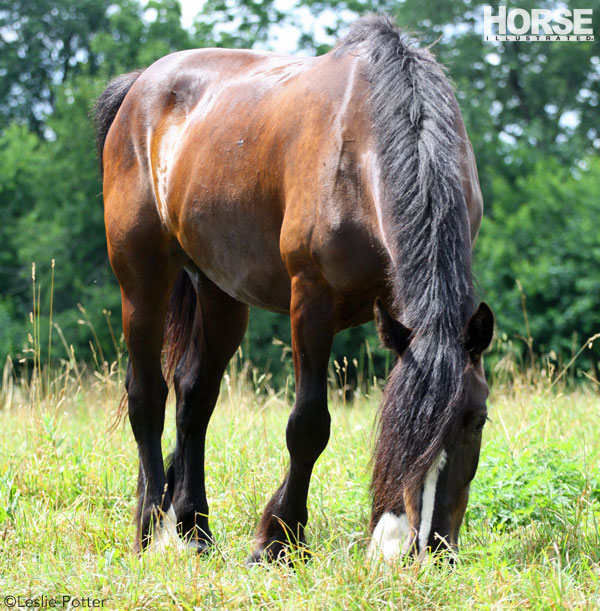
1. Routine: Keeping a consistent daily routine is important for horses. Any change in a horse’s routine can lead to digestive upset. Feed at the same time each day and turn out for the same number of hours daily.
3. Monitor Your Horse’s Environment: Keep an eye on the field! If the apple tree is loaded, you might think about limiting Trigger’s time out in that field. If it is the first bloom of lush green grass in the spring, introduce your horses to it gradually. If a storm brings a lot of tree limbs and other debris into the pasture, clean it up.
4. Deworm Your Horses On a Regular Schedule: A gut full of parasites can cause bellyaches. Having to kill off too many parasites at once can also cause a bellyache. It’s best to not let it get out of hand in the first place. With the ease of administering today’s paste dewormers, there is no reason not to deworm on a regular basis. Speak with your veterinarian about a good deworming schedule for a horse residing in your part of the country.
5. Float Those Teeth: Veterinarians and equine dentists are available options to float your horse’s teeth. When the teeth are left unattended, they develop sharp points that can cause ulcers in your horse’s mouth. Also, you want your horse to have the greatest grinding surface available so that he can get that food in the best digestible condition possible before sending it south to his stomach.
6. Keep The Feed Room Door Locked: Have your feed in containers the horses can’t break into should the door be left open. Gorging on any sort of feedstuff will give horses colic. A serious grain-overload colic will be followed by a terrible case of laminitis (founder), all of which is avoidable if the feed room door is kept locked.
7. Water, Water Everywhere: Horses need clean, fresh potable water available at all times. Don’t forget to keep the water tub in the field clean and filled. Also, the stall should have at least one large automatic waterer or large bucket available. Remember, horses are not evolutionarily adapted to drinking solid water. For that matter, our equine friends aren’t all that fond of very cold water. In order to avoid a fecal impaction, provide water above 50 degrees at all times.
Liked this article? Here are others you’ll enjoy:
Colic Surgery Guide
Acupressure for Colic
When to Call the Vet

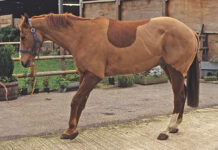
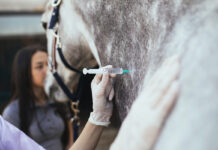
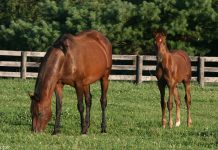

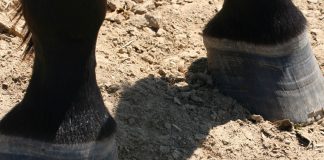
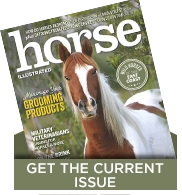
sweet this cool!
Good article. I was not aware how important the warm water is for them.
Thankyou
Very helpful tips
Great artical
I am doing my speech on colic so this is very helpful. And just last month my horse was so close to dying from colic. Yhe vetrenarian didn’t think she would live. So if you read this than you know if you notice any symptoms that it is very important that you call your vet, take away your horse’s feed, and walk them slowly around and around and around until the vet gets their to make sure they don’t get intestinal catastrophe.
i also found out that some horses arent used to differnt tasing water, resulting in them not drinking enough. [they will get dehidrated] and so an idea for those owners out there whos horse wont drink anything but whats from home, you can try putting a little grain in their water, to get them to drink. it makes it somewhat salty, which makes him more thirsty, and when water tastes like grain, what horse wont drink it?!? :}
I just moved my horses and these tips will help keep them healthy. Thanks so much.
good tips
Very good info, thank you
I put a bit of gatorade in the water and my horse loved it.
important stuff
Excellent information!
Good advice!
Good article Horse Channel!
I generally enjoy the articles you post, but am shocked that you recommend deworming on a regular schedule. With the huge increase in resistance by parasites to dewormers, it is actually recommended by parasitologists that you do fecal egg count tests on all horses and only deworm the ones who are large egg shedders, or those horses showing obvious negative health signs that are confirmed to be due to parasite infestation. Routine application of dewormers to all horses, regardless of parasite load, is what is causing resistance to build up! Educate about pasture management, fecal egg counts and herd health, don’t recommend to your readers to deworm unscrupulously!
My friend just lost her Friesian stallion after colicking and suffering a post surgical ruptured bowel. The colic was due to heavy infestation of parasites and a die off because of a switch to a more effective wormer. According to the Equine surgeon it is vitally important to REGULARLY deworm with effective and proven anti parasitic agents that are known to overcome resistance. They said they are getting more and more horses presenting with intractable colic and intestinal dissention and torsion because of owners failure to deworm regularly in the mistaken belief that in order to overcome resistance they will not deworm with regularity.